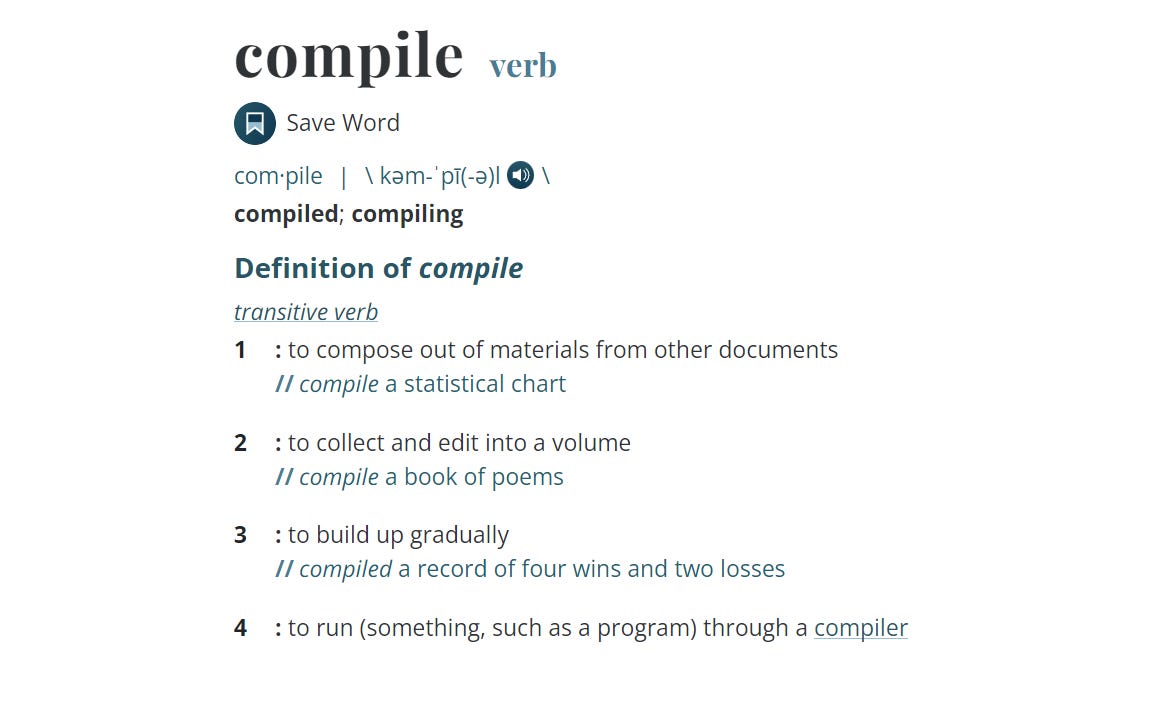compiler queen
what's in a name?
From Merriam-Webster
I have long been a careful collector, editor, composer, and curator of ideas.
In both my work and creative endeavors, I do best when I have something to start with—disparate elements to combine, a yarn ball to untangle, etc. I’m an integrator by nature.
I like working out tricky compiler errors because it challenges those skills. A compiler is trying to process the code it’s been given, but it doesn’t have the heuristic abilities that a human does. A compiler’s ability to get to the root of the issue is impaired if the compiler can’t parse the code to begin with—hence the dramatic effects of a missing semicolon or parensethee. Whereas a human can gloss right over such an omission and still understand the code.
Compilers will output all sorts of strange errors if there are parsing issues, and a lot of human problems are the same way. Finance comes around asking an extremely specific question about how to fix a format error in a CSV download, but upon digging in, the savvy data professional realizes that the root issue is upstream in an improperly formatted new ingestion.
The line number in a compiler error can be (metaphorical) miles away from the actual error, especially if there’s a parsing issue. Likewise, the true source of a professional conundrum or personal challenge can be quite a few degrees removed from where the symptoms/complaints pop up.
Effectively debugging code is all about looking at the compiler errors and asking:
Is that really the problem?
The more you understand the language you’re working with and the compiler itself, the more useful the compiler’s messages are to you, even when they’re “wrong”.
That special skill of being a “compiler whisperer” is, in my opinion, underrated in the coding and automation community. Many people stumble along, doing their best with the errors they get, not realizing that interpreting errors is something that they could get better at.
If you were waiting for it, here’s your permission and validation—being quick and effective at understanding strange compiler error messages is an extremely valuable skill! And if you want to get better at it, look for documentation about how your chosen coding language works “under the hood”. Then, notice how the same ideas might apply to other professional conundrums as well.
*
Take all that, add a dash of priming, spill some Chemical X, and there you have it: compiler queen.

